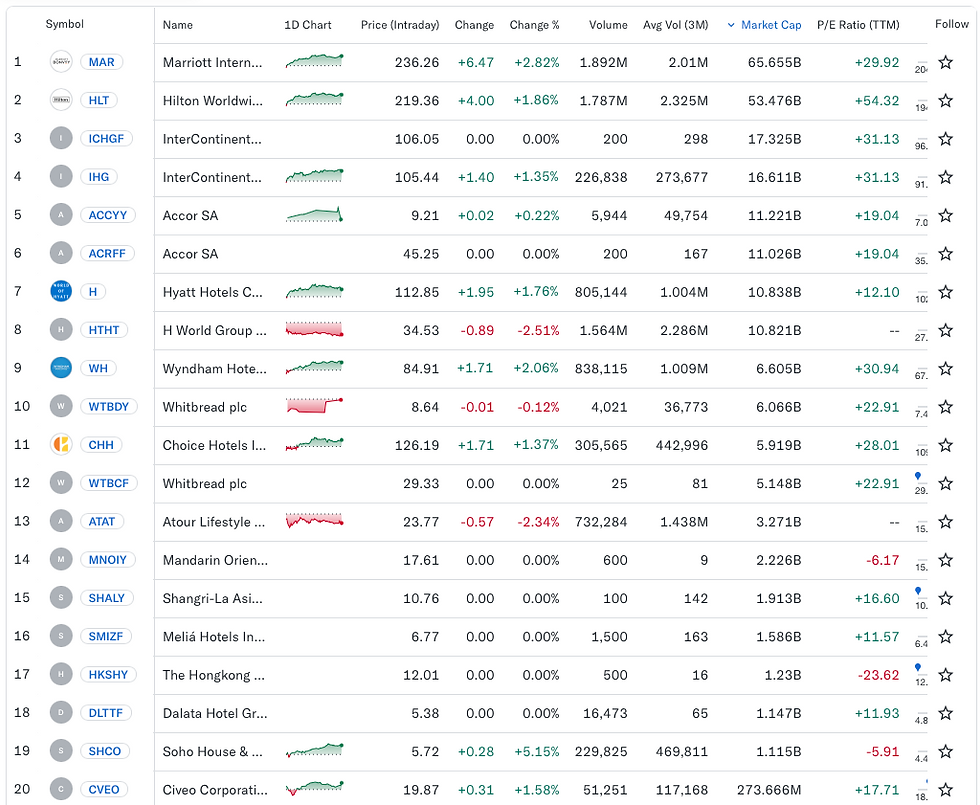Leadership Shifts in the Global Hotel Sector Signal Strategic Repositioning
- Silvia Sanchez

- Jul 1, 2025
- 2 min read
Updated: Jul 3, 2025

Key Executive Appointments and Corporate Moves Reshape the Hospitality Landscape
In recent weeks, several major hotel brands have announced strategic leadership changes, reflecting a global trend in the hospitality industry toward transformation, innovation, and renewed growth post-pandemic.
Among the most notable changes:
A leading luxury hotel group appointed a new global CEO, aiming to reposition its brand portfolio in key growth markets like Southeast Asia and the Middle East.
A major European hotel chain announced the departure of its longtime COO, signaling a pivot toward tech-driven operations and guest personalization strategies.
An emerging hotel collection in North America brought in a Chief Development Officer with experience in sustainable architecture, aligning with ESG-focused investment goals.
These moves come amid rising demand, evolving traveler expectations, and fierce competition in both the leisure and business travel segments.
Why Executive Moves Matter in Hospitality
In the hospitality industry, leadership transitions often go beyond internal restructuring—they are signals of broader strategic repositioning.
These appointments typically reflect shifts in:
Brand strategy and market focus
Technological integration (AI, data, automation)
Sustainability and ESG commitments
Financial restructuring or investor expectations
Leadership reshuffles can also impact employee culture, stakeholder confidence, and guest experience priorities, making them highly relevant for industry watchers and investors alike.
Global Context: Hotel Brands Are Evolving Fast
Since 2023, the global hotel industry has entered a new phase of expansion. Travelers are back—but with different needs. The push toward digital-first services, green operations, and flexible pricing models has prompted many hospitality groups to rethink leadership.
Notable patterns include:
Increasing focus on regional talent to guide local expansions
Cross-industry hires (from tech, real estate, and even retail)
Rise in women executives in hospitality boardrooms
While these changes bring fresh vision, they also imply new internal challenges, such as integrating legacy systems with innovation and aligning diverse teams across continents.
Market and Investor Relevance
From an investor’s point of view, leadership changes can influence:
Stock valuation (particularly for publicly traded hotel groups)
Partnership strategies (real estate developers, cruise lines, airlines)
M&A potential (as seen in recent consolidations within the luxury and boutique segments)
For analysts, observing new appointments provides clues about where the brand is headed—whether toward growth through acquisitions, regional expansion, or sustainability-led differentiation.
Industry Insight: What This Means for the Future
The hospitality sector is no longer just about rooms and service—it’s about adaptability, resilience, and experience innovation. The recent wave of corporate movements suggests that top hotel brands are aligning their leadership with fast-changing global expectations.
While some may view executive shifts as routine, they are in fact a powerful indicator of a brand’s readiness to compete and evolve in a post-COVID, tech-accelerated world.
Key Takeaways
Several major hotel brands have announced leadership changes in Q2–Q3 2025.
These moves reflect strategic priorities like digital transformation, sustainability, and global market expansion.
Corporate appointments influence brand direction, market perception, and investor interest.
Observing these shifts helps anticipate hospitality trends, innovation paths, and market positioning.



Comments